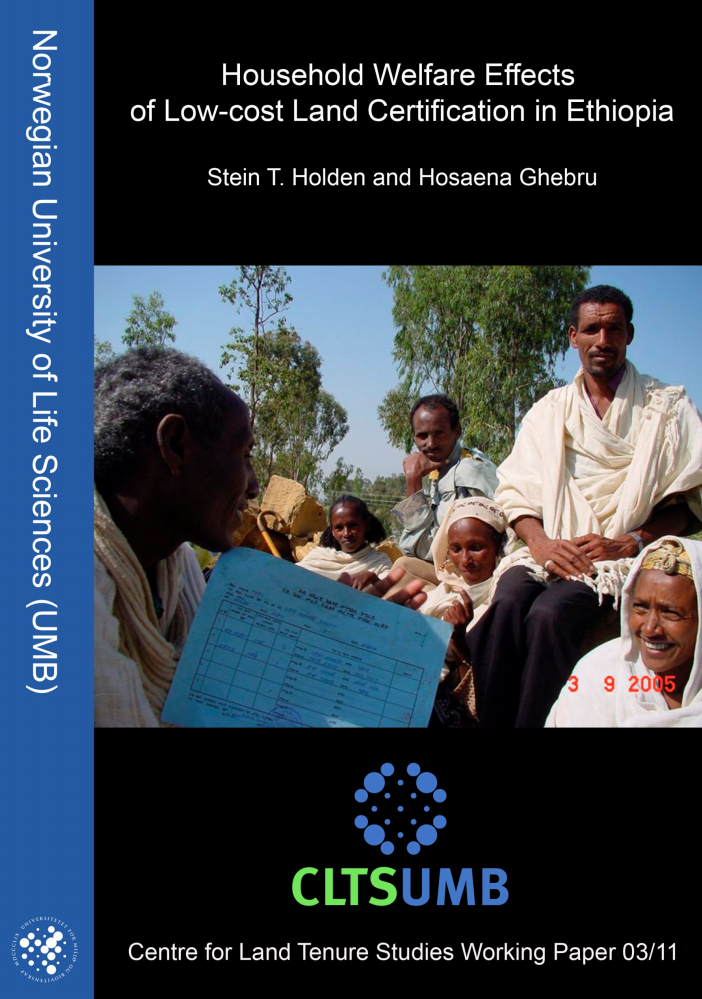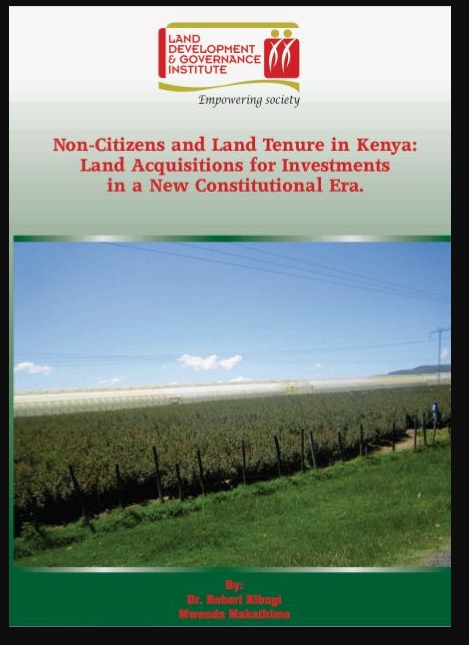Household Welfare Effects of Low-cost land certification in Ethiopia
Several studies have shown that the land registration and certification reform in Ethiopia has been implemented at an impressive speed, at a low-cost, and with significant impacts on investment, land productivity, and land rental market activity. This study provides new evidence on land productivity changes for rented land and on the welfare effects of the reform. The study draws on a unique household panel, covering the period up to eight years after the implementation of the reform.











